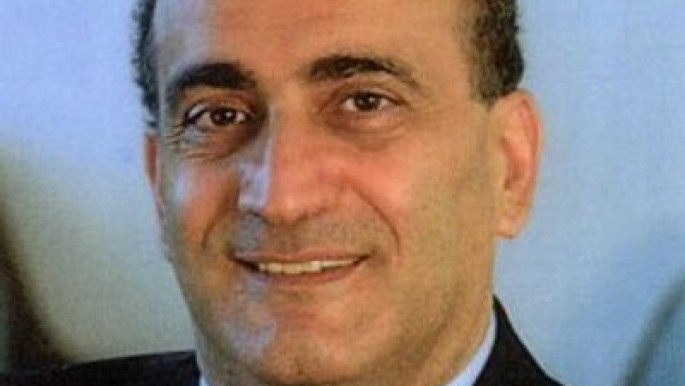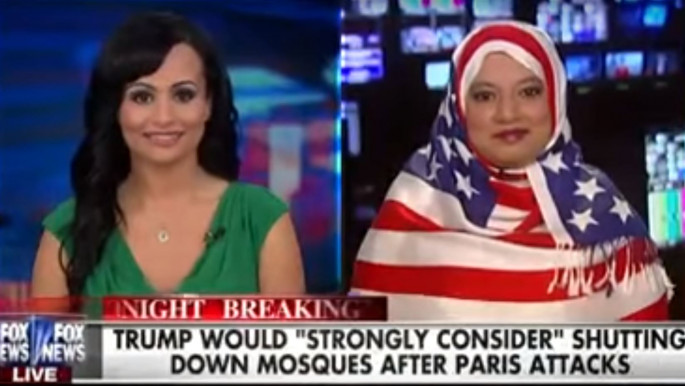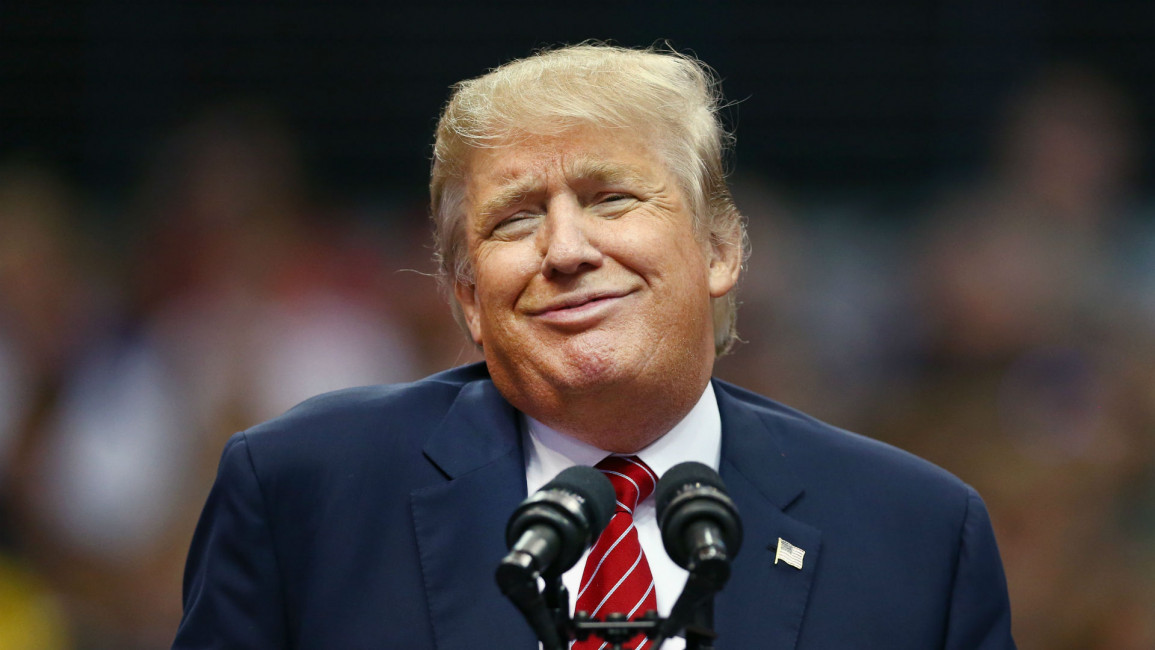
'Muslims are reaching out to Trump', says policy advisor
'Muslims are reaching out to Trump', says policy advisor
A Controversial Trump adviser linked to massacres in Lebanon has claimed that many Muslims have contacted the billionaire's campaign seeking to shape it from the inside.
4 min read
Donald Trump's campaign has drawn the support of some US Muslims [Getty]
As Donald Trump tries to deflect fresh criticism over his controversial 'Muslim ban', the Republican presidential candidate's foreign policy adviser has claimed that US Muslims are in fact reaching out to his controversial campaign.
Walid Phares, who is of Lebanese-Maronite extraction, has said that while he has contacted some Muslim Americans regarding the Trump campaign, the bulk of his discussions with adherents of the faith have been initiated by the other side.
According to Washington publication The Hill, Phares said that Muslim Republicans and Arab conservatives are keen to get involved to influence the real eastate tycoon's policies, despite his continued inflamatory rhetoric.
"Most of those who reached out said they want to support Mr. Trump, but they're not clear about some of the statements he's made," Phares said.
"These people know what they want - they're concerned about the well-being of their communities and believe that Trump has the right economic and social agenda," he continued. "But they're trying to get a handle on how he'll deal with the Middle East."
Phares added, however, that his outreach was not the result of a directive from Trump, but rather a natural extension of his work with Middle Eastern communities.
 |
|
| Walid Phares is Trump's controversial foreign policy adviser [Twitter] |
Recently, the presumptive Republican nominee has faltered slightly on his promise to enact a temporary ban on Muslims from entering the US, telling Fox News on 11 May that it was just a "suggestion."
This partial retreat, however, does not seem to have stemmed criticism about Trump's views on Muslims, with British Prime Minister David Cameron reaffirming his attack on the Republican candidate on Sunday.
Cameron had previously called Trump's policy proposals "divisive" and "stupid", and Sunday said, "I don't withdraw in any way what I said about the policy of not letting Muslims into America. I do think that is wrong and divisive as I said because we've got to demonstrate that we're up against here is a very small minority of a minority: Islamist extremists that want to divide our societies."
On the same day, US Homeland Security Secretary Jeh Johnson also fired a volley at Trump.
"A ban, immigration policy based on religion, is unwise and counter-productive, frankly," Johnson told on Fox News.
"We need to build bridges to Muslim communities. We need to build bridges to American Muslim communities," he continued.
Unconvincing?
However, while members of the UK and US governments seem somewhat adamant in their criticism of the businessman, it seems that some Muslims are keen to change Trump's views through their support.
 |
|
| Saba Ahmed (right) speaks about Trump on Fox News [YouTube screenshot] |
"Something like that could never be enacted so I can ignore it," Ahmed told The Hill.
"He's toned down his rhetoric lately and I'm focused more on the positive messages he has about the economy and balancing the budget and improving U.S. standing in the world."
A controversial past
While Phares' claim that Muslims are supporting Trump may come as a surprise to many, the foreign policy adviser's own past is mired in controversy.
In the 1980s, Phares was a senior political official in a sectarian, right-wing religious militia that perpetrated massacres during Lebanon's civil war.
The Lebanese Front, which Phares belonged to, backed Lebanese General Michael Auon in his battles against Syria's President Hafez al-Assad.
During the civil war, the Lebanese Front was responsible for the Tel al-Zaatar massacre, in which up to 3,000 Palestinians were killed, in addition to the Karantina and the Ehden massacres.
Following Saddam Hussein's invasion of Kuwait in 1991, however, an agreement between the US and Syria to get rid of Gen. Auon saw Phares flee his country to resurface as a counter-terrorism expert in the United States.




